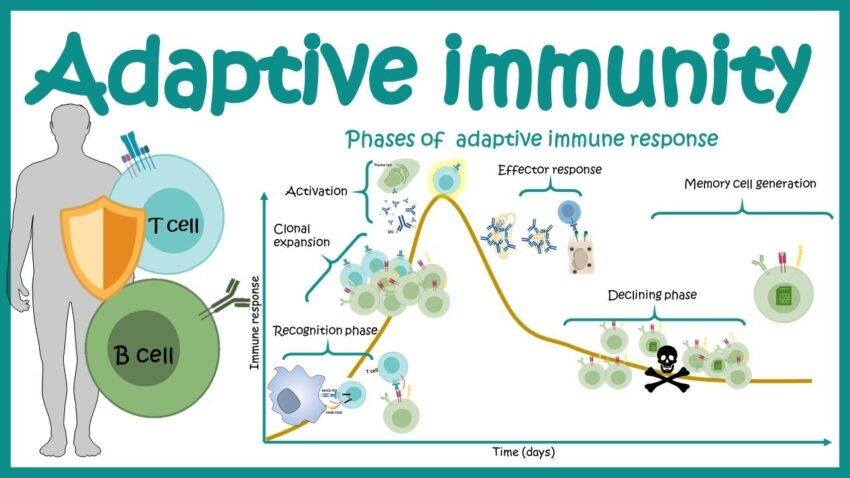Researchers at Radboudumc have made a significant discovery regarding the immune response driven by a one-letter difference in our DNA. This one-letter difference determines whether the BCG vaccine provides effective protection against tuberculosis (TB) or not. The study, published in Nature Genetics, sheds light on how this genetic variation affects the activation and deactivation of the immune system. The findings not only deepen our understanding of interleukin-driven inflammatory responses but also open up new possibilities for guiding or redirecting the immune system.
Individuals often exhibit diverse reactions to the same pathogen or vaccination, with some individuals getting sick while others remain unaffected. These differences can be attributed to the variations in our genetic material, or in other words, our genomes. Our genome differs from person to person, and this diversity largely determines our response to pathogens and vaccinations.
The complete human genome consists of more than 3 billion DNA molecules, with only about 2 percent of these containing information about the proteins that operate within our bodies. These proteins, known as workforces in our cells, are responsible for various functions such as building, repairing, and maintaining our body. The remaining 98 percent of our DNA was long regarded as junk or redundant, without any clear function.
However, recent research has shown that this so-called junk DNA, also known as the non-coding genome, is, in fact, essential. Although it does not produce proteins, it plays a crucial role in coordinating and shaping them. The non-coding genome achieves this by producing pieces of RNA, which interfere with various processes in the body, including the response to pathogens and vaccines.
The researchers focused on the BCG vaccine, which protects against TB. The vaccine has been found to offer protection against not only TB but also other infections by eliciting epigenetic changes in blood-forming stem cells in the bone marrow. These stem cells are responsible for producing white blood cells, which are crucial for the immune system. However, the effectiveness of the BCG vaccine varies depending on a single-letter difference in the genetic material, known as a single-nucleotide polymorphism (SNP).
Individuals with a letter G at this specific location in their genome respond well to the vaccine, while those with an A show only moderate protection. The researchers sought to understand why this one-letter difference has such a profound impact on the functioning of the immune system. Through their investigation, they discovered a long stretch of non-coding RNA, which they named AMANZI. This RNA molecule plays a critical role in the regulation of interleukin-1β (IL-1β), a key component of the inflammatory process.
After the BCG vaccine is administered, AMANZI activates IL-37, triggering an anti-inflammatory response that regulates the activity of IL-1β. This regulation is crucial for the development of long-term immunity and memory associated with vaccination. The researchers found that this process is highly effective in individuals with the G-SNP, while it is less effective in those with the A-SNP. In cases where the A-SNP is present, AMANZI stably maintains the IL-37 brake, resulting in dampened immune responses to both the vaccine and pathogens.
By removing the A-SNP variant of AMANZI in white blood cells, researchers observed the re-establishment of pro-inflammatory protection, confirming the effect of this one-letter difference. The researchers further explain that AMANZI exerts its influence on genes through epigenetic processes. These processes involve turning genes on and off, and even small variations in a single-letter can have profound consequences on the immune system.
This discovery not only applies to AMANZI but likely extends to many other long stretches of non-coding RNA. The researchers suggest that these variations can either enhance or attenuate the effects of the inflammatory process driven by interleukins. Further research is necessary to understand how multiple polymorphisms together influence immune responses driven by IL-1β.
The ultimate goal of this research is to map all the components involved in IL-1β signaling and trained immunity in order to determine their clinical relevance. It is worth noting that nine out of ten SNPs are found in non-coding regions of the genome, further emphasizing the importance of understanding the complexities of this genetic variation. Overall, this study provides valuable insights into the role of genetics in shaping individual immune responses and may pave the way for personalized immune interventions in the future.
*Note:
1. Source: Coherent Market Insights, Public sources, Desk research
2. We have leveraged AI tools to mine information and compile it

